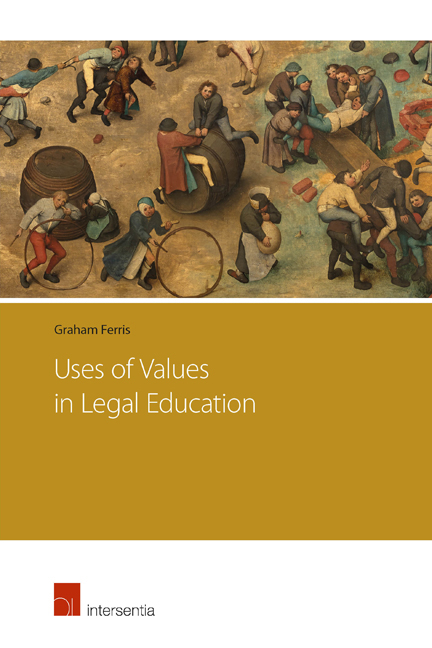Book contents
- Frontmatter
- Dedication
- Foreword
- Preface
- Acknowledgements
- Contents
- PART I STATUS QUO AND WHERE TO GO
- PART II HOW VALUES SUPPORT LEARNING
- PART III TEACHING ETHICS
- Chapter 5 Teaching Ethics
- Chapter 6 Seeing Ethical Problems
- Chapter 7 Teaching Moral Judgment
- Chapter 8 Ethical Identity
- Chapter 9 Ethical Action
- Table of Cases
- Bibliography
- Index
Chapter 9 - Ethical Action
from PART III - TEACHING ETHICS
Published online by Cambridge University Press: 22 November 2017
- Frontmatter
- Dedication
- Foreword
- Preface
- Acknowledgements
- Contents
- PART I STATUS QUO AND WHERE TO GO
- PART II HOW VALUES SUPPORT LEARNING
- PART III TEACHING ETHICS
- Chapter 5 Teaching Ethics
- Chapter 6 Seeing Ethical Problems
- Chapter 7 Teaching Moral Judgment
- Chapter 8 Ethical Identity
- Chapter 9 Ethical Action
- Table of Cases
- Bibliography
- Index
Summary
TEACHING MORAL CHARACTER
The concept of moral character, as the expression is used here, is concerned with the ability to see the ethical action through to completion. The emphasis is not on disposition or inclination to act ethically, as that has been the focus of the discussion of moral motivation. However, the fact that the word ‘character’ can mean either general disposition for action, or the ability to see a course of action through, is an indication of how close these two aspects of a person are.
Someone who lacks character might be described as irresolute, or ineffectual, or weak, or cowardly. There is a close relationship between confidence in one's goals and moral character. The more salient the goal is to the actor the less salient is the risk of something going wrong. The more one contemplates the risks of action the less likely one is to act. Contemplation of danger can make one irresolute or cowardly. The more clearly one is sure about what to do, the more likely one is to act. Confidence in purpose allows one to act resolutely.
Clearly, if one is sure of one's priorities, if one is wholehearted and committed to one's relevant life projects, then it is more likely that one will act effectively. Moral motivation is likely to lead to moral character. Indeed Colby and Damon found this to be true of their moral exemplars. As a group these people were notably confident, and not overly distressed by the thought of risk:
‘A common notion among psychologists is that moral action is a choice one makes after sorting out one's options and weighing the consequences of action or inaction to the self and others. A number of information processing models have been offered to explain this sorting and weighing process. The common theme in all of these models is the notion that individuals bring a number of evaluative frameworks to bear on problems of moral choice. There are frameworks of moral judgment, frameworks of social and personal responsibility, frameworks of self-interest and so on … Th e picture of human morality that follows from such theories is a picture of well intentioned people constantly in the throes of decision (or indecision, as the case may be) …
- Type
- Chapter
- Information
- Uses of Values in Legal Education , pp. 241 - 254Publisher: IntersentiaPrint publication year: 2015



